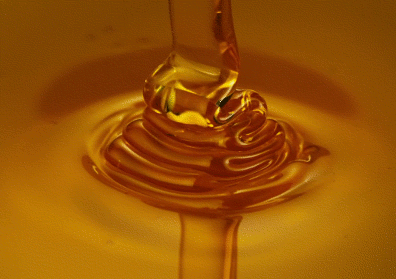
Have you watched Jerry Seinfeld's 'Bee Movie'? This animated movie depicts a worker bee stuck in a dead-end job of making honey, sues humans when he learns they've been stealing bees' nectar all along. Much like real-life!
Vegans and nonvegans often debate whether honey is vegan and its effects on the bee community. The thick golden honey makes its way on your toast, pancakes, cereal, and even in your lip balms. But is honey vegan? Short answer, NO!

Bee is an insect. Are insects animals? Yes, absolutely. Honey is fundamental to the hive’s wellbeing. The honey bee visits up to 1500 flowers to collect enough nectar to fill its stomach in which the enzymes begin to break down the nectar into honey. After returning to the hive, this is chewed by house bees to complete the honey-making process. A single worker bee produces 1/12 teaspoon of honey in its lifetime: significantly less than most people would expect.
Unethical practices
Let me fly!
A process called ‘swarming,’ occurs when a new queen bee is about to be born, and the old queen and half its colony leave their home. They set up a new place to start a new colony. Since swarming implies producing less honey, many beekeepers try to avoid it, often by clipping the new queen's delicate wings or killing and replacing the older queen.
Seasonal killers
Queen bees are often killed by the beekeeper every year and a new queen is then introduced to the hive. Before the winter starts, beekeepers burn the beehives along with the bees, to reduce their cost.

Take my consent, will you!
Some beekeepers artificially inseminate their queen bees. Semen is collected from male bees by crushing their heads and thoraxes. Queens are then inseminated using hooks and syringes. Beekeepers have also artificially increased cell size in hives, leading to larger bees, and they selectively breed these bees for characteristics like docility and honey production.
You drugged me!
Commercial beekeepers use antibiotics to keep their hives free from disease. This large scale use of antibiotics is proven to cause immune deficiencies in the hives. It also contributes to resistant forms of bee diseases and pests, affecting the beehives.
Don’t steal my food!
Bees make honey for their survival in the winter. A colony needs about 60 pounds of honey. But we humans steal them all. Beekeepers remove honey from a hive and add sugar substitute reducing all of the micronutrients that make honey so beneficial in the first place. This leads to bees with nutritional deficiencies. Some beekeepers even resort to high fructose corn syrup, which results in bees that have less natural defenses to any threat, including pathogens, winter temperatures, and pesticides.
But I love honey! Are there any honey alternatives?
 Review by@carlajc of Maple Syrup.
Review by@carlajc of Maple Syrup.
Several vegan alternatives like maple syrup, agave, date syrup, coconut nectar, bee less honey, butterscotch syrup are all viable options. Check out this agave syrup, maple syrup from Woolworths or Trader Joe's and date syrup from Silan. Another amazing beeless honey alternative is the Plant-based Artisan's, Vegan Honea. You can also make your own honey at home, check it out.
But honey is amazing for my skin!
Bee products like honey, pollen, propolis, royal jelly and even venom are having a major wellness moment. But there is always a replacement for bee products from plants that do wonders to your skin.
 Review by @veganinthe614 of lip balm from Shea Moisture.
Review by @veganinthe614 of lip balm from Shea Moisture.
1. Beeswax
Beeswax created from bees converting nectar into wax that forms a honeycomb structure to store the colony’s honey. It’s often used in candles, lip balm, lotions, and other makeup products. However, there are alternatives to beeswax, like shea butter, soy wax, candelilla, carnauba and bayberry wax. All these waxes are derived from plants, leaves and shrubs which are just as good as beeswax for the skin. Look for beauty products that contain alternatives over bee products. Like The Body Shop, Hurraw, Shea Moisture and some of Burt's Bee products are vegan too and of course the supremely popular Sun Bum products are all vegan and cruelty-free.
2. Royal Jelly
Worker bees have glands in their head that ooze out a material called royal jelly. This goop is fed solely to young queens-in-the-making, a mechanism by which ovarian production is regulated. Royal jelly is often hidden in creams and lotions. Alternatives to royal jelly are aloe vera or comfrey. So check the list of ingredients before buying a product. Check out these products without beeswax Neal's Yard Remedies, Sukin, Biossance and Aveda to fight anti-aging.
However, both the European Food Safety Authority and the U.S. Food and Drug Administration (FDA) have indicated that no evidence exists to show that ingesting royal jelly has any health benefits for humans.
3. Propolis, bee pollen and bee venom
Within bee colonies, bees serve a number of different purposes, such as sealing gaps in hives and serving protein that growing bees need to develop. While honey, royal jelly, and beeswax are all secreted by the bodies of bees, propolis and pollen are substances that naturally occur that bees look for and harvest. These are often found in deodorant, shampoo, wine, and dietary supplements. Make sure you look for the vegan and cruelty-free symbol when buying a product. Check out cruelty-free beauty products for conscious buying.
But what if I consume natural, raw honey produced ethically?











